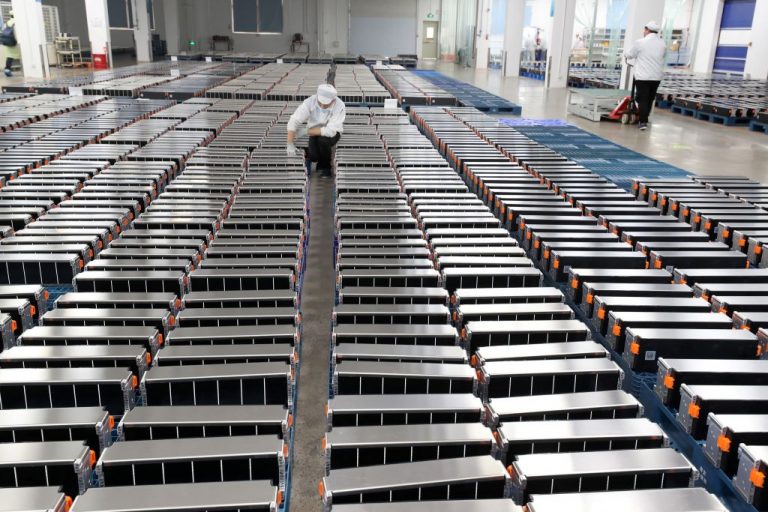In the pursuit of sufficiently-powered vehicles, a market rally for lithium has caused a sharp increase in the price of the metal over the last year.
However, the spike in prices has shown its cracks and could potentially affect market demand for the prized metal — forcing some electric vehicle (EV) makers to shift gears in the production of new vehicles.
Turbulent prices
As Tesla founder Elon Musk described, the prices of lithium had reached “insane levels”, reaching less than 500 percent between January 2021 and January 2022, data from Benchmark Mineral Intelligence (BMI) suggested.
The price of spodumene, the type of lithium mainly used in China’s production of car batteries, rose from $1,650 per tonne in December 2021 to $2,400 in January 2022 — a roughly 45.5 percent increase.
BMI is anticipating that the price will increase even more in at least six months as the demand for battery cells and EV’s rises.
Success
You are now signed up for our newsletter
Success
Check your email to complete sign up
Energy transition analyst Tim Buckley believed that demand for the metal could remain high, showing optimism for how the rising prices could impact markets. He also stated that due to a labor shortage at mining sites in Australia, demand for EV’s in China would head the market, becoming a “structural change” in the world economy.
China saw a 154 percent increase in sales of electric cars in 2021, with 3.3 million vehicles sold as a whole. The communist-led country also possesses the majority of the world’s lithium, with a new lithium deposit possibly found near Mount Everest in February.
READ MORE:
- Lithium Deposit Found Near Mount Everest, Potential Economic Boost for China
- Infra Bill EV Policy to Look Into China’s Human Rights Abuses, Biden Wants 50% New Vehicles to be Electric by 2030
Buckley also believed that the increase of lithium prices could benefit Australia, which also possessed its own sources of lithium, despite competition with the “lithium triangle” of Bolivia, Chile and Argentina.
According to consulting firm McKinsey, the market for lithium batteries might reach at least $360 billion by 2030 – almost 20 percent a year “until the end of the decade.” However, analysts warned that the price of lithium might cause market demand to increase, prompting newer lithium mines and expanding supplies to drop the price of the metal.
That is what eventually happened as it was reported that the price of lithium suffered a drop on Monday, Apr. 11, as reported by Asian Metal Inc.
The recent COVID-19 outbreak that has struck China with ensuing lockdowns has been cited as the source of the disruption of the EV supply chain, while buyer dissatisfaction over the increased prices added more heat to the demand.
According to analyst Maria Ma at Shanghai Metals Market, the pandemic had disrupted production of new cars and “inventory levels remain high at battery manufacturers.”
“Companies are also pressured by the elevated lithium prices and there’s strong price resistance,” Ma told Bloomberg.
The fall of the prices may also be linked to the “apparent failure of the car making industry” to provide adequate supply for future use.
When Shanghai was placed under lockdown, several car making companies like Tesla Inc. and Volkswagen AG had to cease production at their factories in the Chinese city. Chinese EV startup Nio Inc. also reportedly shut down production, while Contemporary Amperex Technology Co. (CATL) is undergoing isolation of its workers in a “closed loop” in its main factory in Ningde.
Due to the rising lithium costs, Elon Musk also said that he is considering getting into mining and refining the metal for himself.
READ MORE:
- 26 Million People Under Shanghai Lockdown as Chinese Regime Deploys Strictest COVID Measures Since Pandemic Began
- Volunteer Worker in Shanghai Reveals Dysfunction of China’s ‘Zero-COVID’ Policies
- Elon Musk Tables Bid to Buy Out Twitter, Says It Must Be ‘Privatized’ to Protect Free Speech
Keith D. Phillips, CEO of Piedmont Lithium, told Kitco News that the resulting battery shortage from the lithium prices could very well last until the 2030s, adding that China is struggling to find raw materials, since they are “mostly converters” of the metal instead of being owners of it.
Despite the repercussions of increasing lithium prices, Chinese interest and optimism for converting to EVs is less likely to wane, analysts at Fitch Ratings said.
“Chinese EV deliveries are likely to remain robust over the coming months with strong order backlogs, despite the recent price hikes due to surging battery costs,” a report by Fitch Ratings on Apr. 4 read.
McKinsey also expressed the need for new technologies and supply sources to help keep lithium output at a stable level.
















